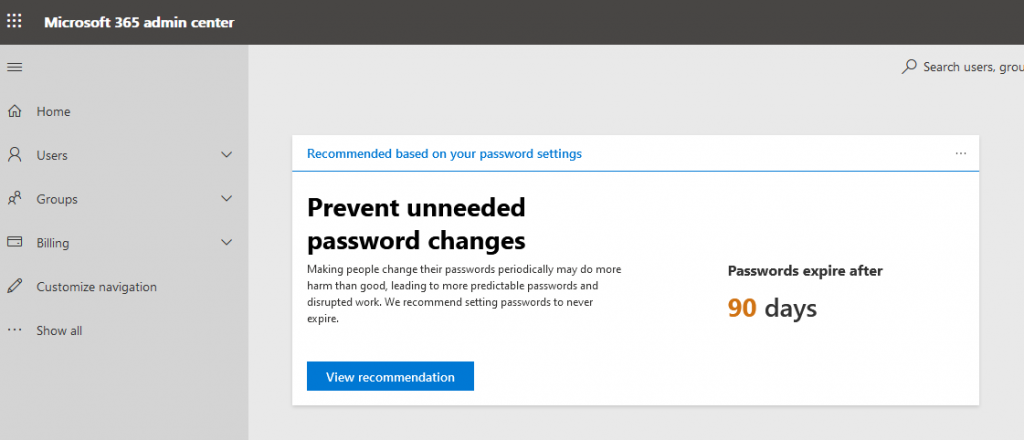I knew Microsoft was publishing recommendations against forced password expiry, but it was still surprising to see this banner in my Azure admin portal. It would be nice if their message was clearer on the nuances here — especially that enabling MFA (preferably not SMS-based MFA that is just asking for someone important’s number to get hijacked) is an important component of this recommendation.
In one of my first jobs, I was a sys admin for call-center systems. As such, I interacted with a lot of the call center management and staff … and, when you know someone in IT, you ping them when the proper support route isn’t as responsive as you’d like. Which is to say I did a good bit of end-user support as well. The number of people whose password was written on a post-it note under the keyboard astonished me. This particular call center didn’t have floating seating, but two or three people would share a cube because they worked different schedules. If I’ve got to come up with a new thing I need to remember every 90 days … well, that’s how you end up with Winter19, Spring20, Summer20, Autumn20 or Maggie12, Maggie13, Maggie14 passwords. That then get posted under the keyboard so I can remember that I’m up to “14” now. Couple that with the overhead of supporting password resets for those who didn’t write it down and happened to forget the password. I’d been a proponent of long password expiry coupled with increased complexity requirements. Maybe !Maggie-19? is good for all of 2019. It’s nice to see a major IT vendor starting to realize the real-world impact of IT policies.
